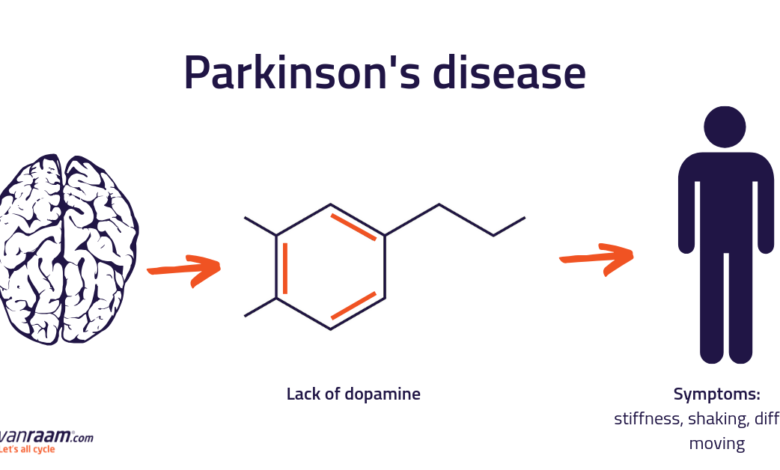Living With Parkinson’s – Coping Strategies and Lifestyle Changes

Living with a long-term condition like Parkinson’s can be difficult. Many people with PD choose to live independently in their own homes (or in the house of loved ones) for as long as possible.
Despite the physical, psychological, and emotional changes, they find ways to adapt and manage their day-to-day life. Some of the most common coping strategies include:
Managing Symptoms
When a person is first diagnosed with PD, they may go through a range of emotions and stages of adjustment. This is natural, and every person adjusts to their symptoms. Denial can be an unhealthy coping mechanism if it lasts for too long. If your loved one experiences this stage, encourage them to talk with their doctor or therapist specializing in Parkinson’s disease.
A person can also manage symptoms by eating plenty of fruits, vegetables and lean protein. It helps them to maintain healthy body weight and prevent secondary symptoms such as constipation. Drink enough water to keep hydrated.
Exercise is a great way to cope with Parkinson’s. Exercise strengthens muscles and improves flexibility. It also helps to prevent falls. It can also help relieve some PD symptoms, such as stiffness and slow movement. Before starting a new exercise program, people with PD must check with their doctor that it is safe.
Sleeping well is important for the overall health of PD patients, but they often have difficulty sleeping. Sleeping can be disrupted by pain, anxiety or depression. It’s helpful to use relaxation techniques such as deep breathing, meditation or a warm bath before bedtime.
Dealing With Depression
There is no cure for Parkinson’s, but coping strategies can help people deal with the condition and maintain their quality of life. For example, a person can reduce the risk of depression by maintaining social networks, participating in a support group or exercising regularly. They can also use non-pharmacological treatments, such as yoga, massage and acupuncture, which may ease some symptoms.
For some, the most difficult part of living with Parkinson’s is when daily activities become more challenging. This can include bathing, eating and sleeping. It’s important to keep doing as many of these activities as possible and to have a good attitude.
Other coping strategies can include wearing brightly colored clothing, using assistive devices to improve mobility and making modifications at home to make it easier to get around. For instance, removing throw rugs and low-lying obstacles from walkways can help a person avoid falls. Removing objects from counters within reach of someone who cannot bend down or use a stepladder to move them is also helpful.
If you’re struggling with depression, seek help from a mental health professional. You can find a qualified therapist through your employer’s Employee Assistance Program, the National Alliance on Mental Illness or a local community mental health center. A support group for people with PD or other chronic conditions may provide advice and guidance.
Managing Your Relationships
It is important to remember that living with Parkinson’s will change your relationship with loved ones. Some people with the condition will depend on family members for help with daily activities and transportation to doctors’ appointments. Others may have to move into a nursing home or assisted living facility as symptoms worsen. Keeping communication lines open can help you manage your emotions and those of your loved ones.
You and your loved ones might benefit from talking to a mental health professional, especially if depression persists. Depression can lead to a faster physical decline in people with Parkinson’s, so it is vital to seek treatment.
Encourage your loved one to stay active and not let their PD limit the activities they enjoy. Exercise can improve balance and mobility, so consider a walking program or other movement-based activities. Exercise can also boost mood and make you feel better overall, so stick to your schedule even if it gets challenging.
Support groups for people with Parkinson’s disease can be a good source of comfort and advice. Your doctor, nurse or social worker can recommend a group in your area. Or you can search online for a group through the Parkinson’s Foundation or other organizations. Invite your loved ones and friends to join you if you find a group.
Managing Your Finances
Managing your finances can be challenging when you or someone close to you is diagnosed with Parkinson’s. Taking time out to relax and learn techniques to reduce your stress levels is important. You can also seek out financial advice and assistance from specialist organizations.
Adapting to Parkinson’s can greatly impact your relationships with family and friends. You may spend less time with some people, and you’ll need to be flexible and accept this. It’s also important to stay active and eat well. Physiotherapists can help develop personalized exercise programs to improve symptoms.
You can also consider complementary therapies such as yoga and acupuncture, which have been shown to help with pain relief and relaxation. Acupuncture involves stimulating specific points on the body’s meridians or energy pathways. Some practitioners specialize in treating Parkinson’s disease, and you can find one through the National Parkinson Foundation website.
Other treatments include mindfulness, which helps you focus on the present moment and improve your quality of life. Talk therapy can also be helpful, especially for those struggling with depression or anxiety about their condition. Your GP or a PD specialist nurse can recommend a counselor or psychologist familiar with the state, and there are also Parkinson’s disease support groups.



